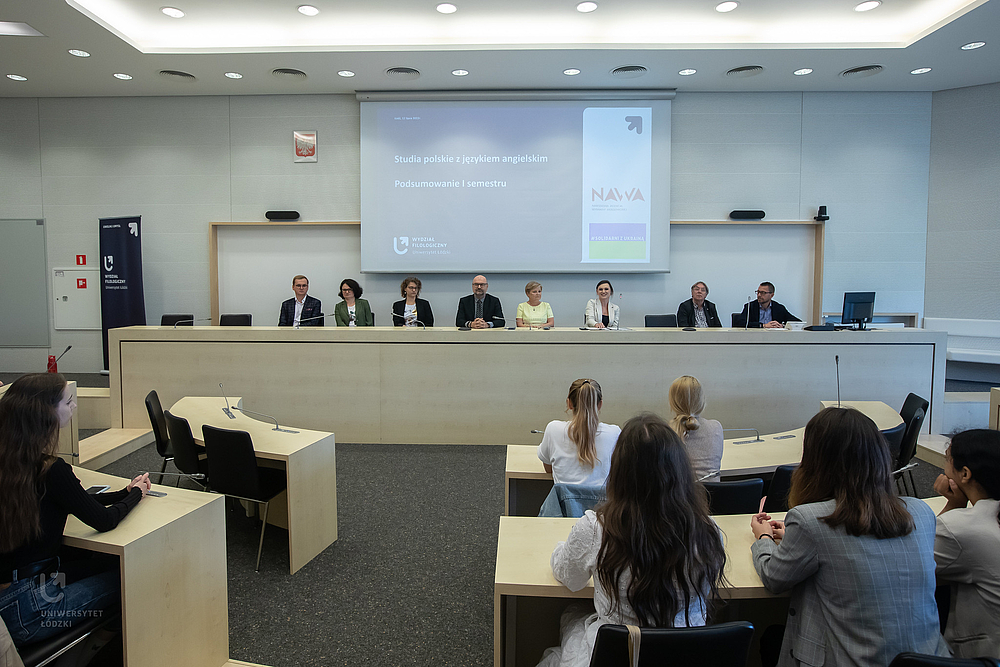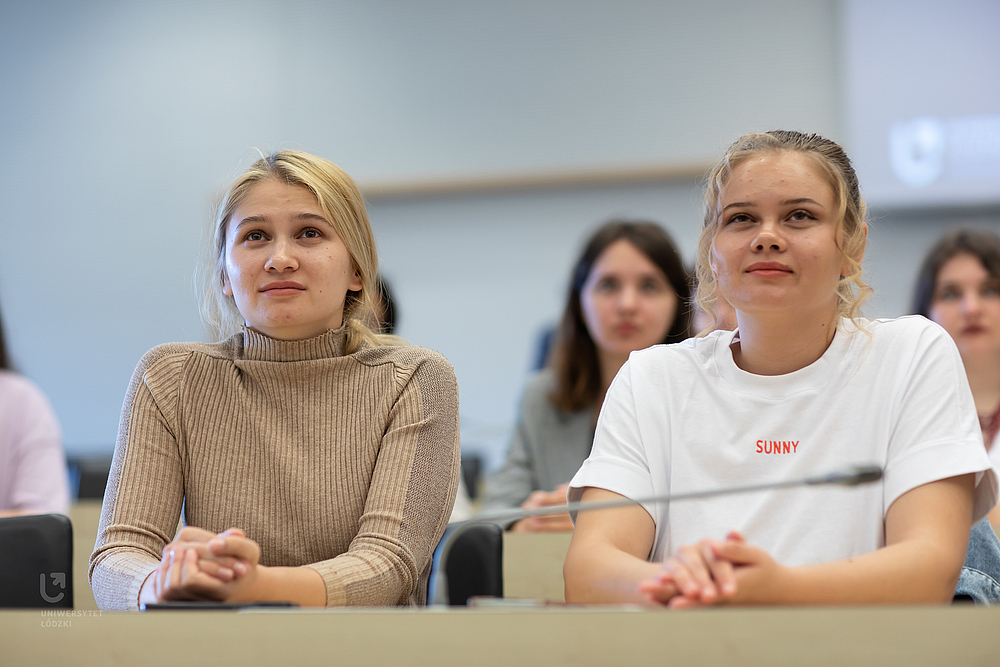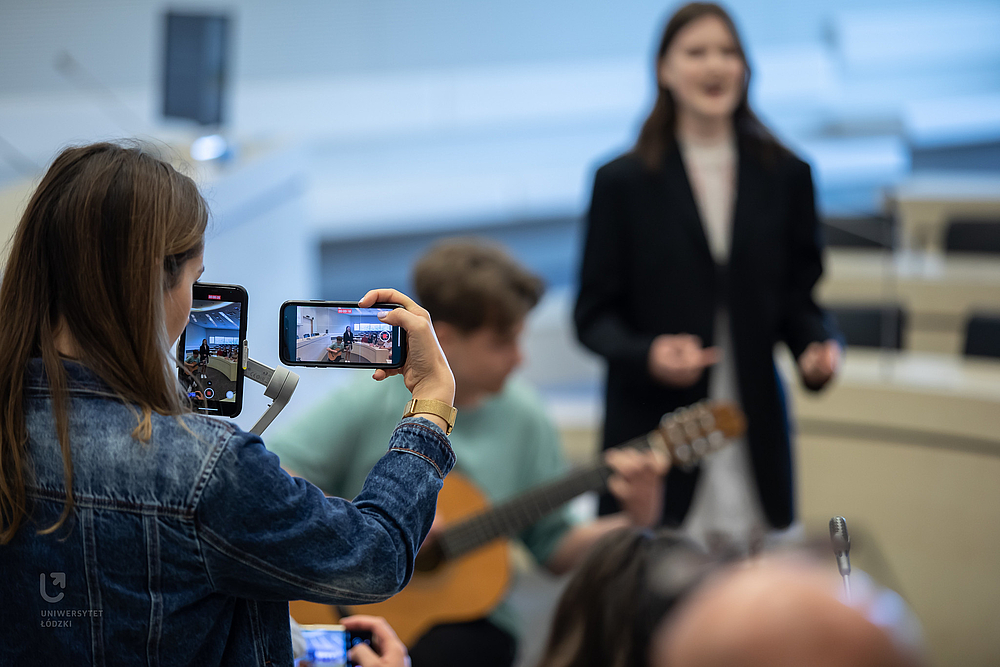
Photo report from the end of the semester
Last Tuesday (12 July), the activities related to this unique initiative on a national scale were summarised. The idea of studies was born 2 years ago, and the Dean of the Faculty of Philology, prof. Joanna Jabłkowska was their originator. The events of February and the war outbreak accelerated the decision to launch the studies. The first semester was completed by 29 students.
The first edition actually started in an extraordinary mode and was addressed specifically to young people from Ukraine who were fleeing the war. Te classes began on 4 May and lasted 10 weeks. The programme was very intense. Every day the students spent many hours at the university
– emphasizes the coordinator of the study programme – prof. Rafał Zarębski.
This is not a proposal only for Ukrainians. The studies were created for people who do not know Polish or who are not advanced Polish speakers, foreign nationals and Poles living abroad. This is an offer addressed to people interested in Polish language and Polish culture. Right now, in July, we have about 50 candidates for the new academic year
– explains one of the lecturers, dr Mateusz Gaze.

Students get to know the language, culture and Polish cities
During the Tuesday's meeting, lecturers fondly recalled their first classes at the university, which were accompanied by uncertainty and fears about how international students would find their way in the new reality, with what was happening in their home country at the back of their minds. Fortunately, the adaptation process went smoothly. The examination session was completed by all the students. We asked a few of the participants how they recall learning during this extremely intense period.
It was really interesting to be able to learn Polish taught by different people. There are many lecturers here and each of them has a different approach. Grammar was the most difficult subject – it is very complicated. I plan to stay in Poland, Poland is very similar to Ukraine. I don't know what exactly I'd like to do... Maybe something related to art and the media?
– says Oleksandra.
For me, everything was new, I had never studied at a university before. Thanks to my studies, I can now work in Poland because I understand the language. I associate my future with Poland, there are very good people here and I am pleased to get to know your country and culture!
– explains Anna.
Polish is similar to Ukrainian, it is not very difficult. I like Polish grammar, I like practical language learning. When it comes to people, Poles are very friendly towards Ukrainians. I don't know yet what I could do after college. Maybe I could work as a translator or work in a corporation
– wonders Ivan.
The lecturers thanked the students for the time they worked together during the classes and wished them holidays full of Polish culture and science, as well as strengthening relationships with friends. And there will be quite a lot of opportunities to strengthen friendship and broaden knowledge about Polish culture and language despite the summer break. In the summer, 2 trips will be organised for the participants of the studies, which will be co-financed from the NAWA funds under the "Solidarity with Ukraine" programme. In July and August, the students will go to the Museum of Archaeology and Ethnography in Lodz and go to Malbork, Gdańsk and Gniew.
Musical surprise
On Tuesday, words of gratitude could also be heard from the students.
I would like to thank everyone involved in this study programme and our lecturers, because they are very professional people. Thanks to them, we can learn a lot about Polish
– said Ola, one of the students from Ukraine. The international students did not limit themselves only to verbal thanks.
At the end of the meeting, they also prepared a unique musical surprise for their lecturers – they sang the song "Simple Roads" by the Kwiat Jabłoni band, of course entirely in Polish.

Another edition of the studies
The Ukrainian students, like their Polish friends, will return to the university at the beginning of October. In the next semester, new subjects will appear in the schedule, among others, history of Poland or an introduction to knowledge about Poland and Poles. Part of the classes will be conducted in English.
From the 4th semester of study, the students will be able to choose one of two specialisations. The available options are Polish language in tourism and business and teaching Polish as a second/foreign language.
The goals that were set for students to achieve after 6 semesters include: knowledge of Polish and English at a minimum level of B2, as well as developed philological skills, including public speaking and writing texts in various stylistic varieties of Polish. Great emphasis is also put on knowledge about contemporary Poland and Polish media.
Everything seems to indicate that Studies on Poland with English will permanently remain in the teaching offer of the Faculty of Philology of the University of Lodz.
We are planning further editions of the studies. I already know today that there is a lot of interest in the ongoing recruitment
– emphasizes prof. Zarębski.
Detailed information about the study programme can be found in the Candidate Zone on the website of the University of Lodz.
Source: Bartosz Burski (Faculty of philology, University of Lodz)
Edit: Bartosz Kałużny (Promotion Centre of the University of Lodz)
